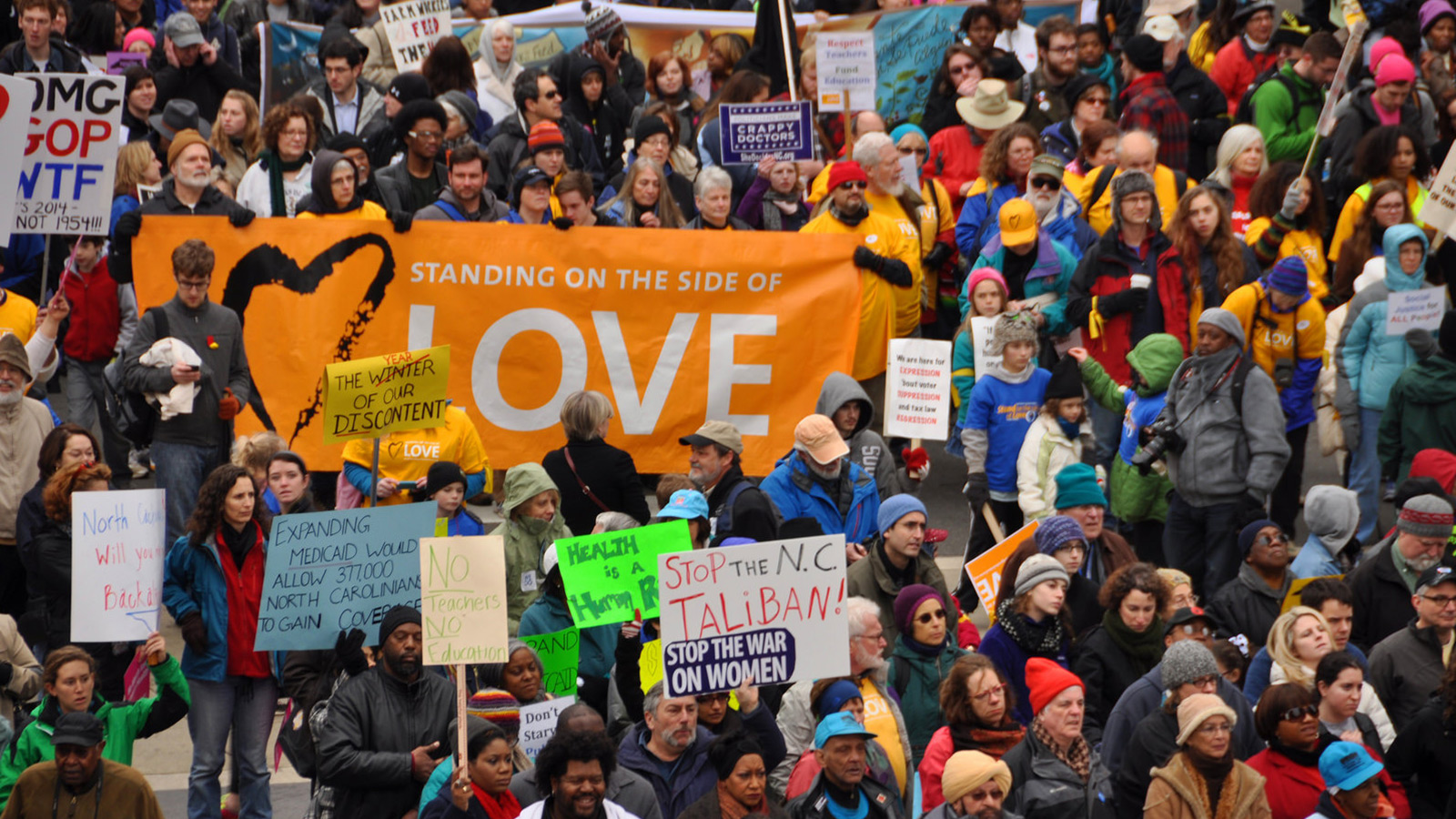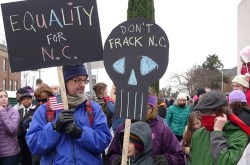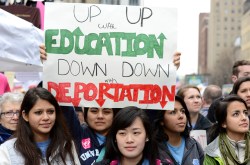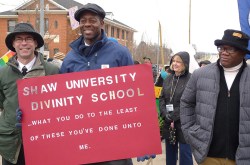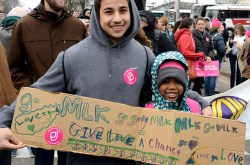Over the weekend, I had the opportunity to attend the “Moral March” in Raleigh, N.C., a civil rights march for progressive policies that’s happened every February since 2007. The rally is organized by the Forward Together movement and the Historic Thousands on Jones Street People’s Assembly (aka “HKonJ”), a coalition of hundreds of social justice organizations covering a wide swath of issues including labor, immigration, education, economic justice, voting rights, criminal justice, and environmental justice.
The march, attended this year by an estimated 80,000 to 100,000 people, is probably the best example in the nation of a statewide, multi-racial coalition that has prioritized promoting the intersectional plight of civil rights, politics, economy, and the environment in America. The images in this post should give you a picture of just how impressively diverse in terms of race, age, and areas of interest the marchers were.
Last year, the Moral March was the jump-off for a proactive campaign sending a message to the just-elected Republican Gov. Pat McCrory and the Republican-dominated legislature not to roll back progressive policies the coalition helped create over the previous decade. But conservative lawmakers proved ruthless. Prodded by their friends in the business-industry advocacy group American Legislative Exchange Council (ALEC) and the ultra-conservative, state-based Civitas Institute, Republican legislators passed laws that cut $38 million from the state’s budget for economic and community development initiatives, shifted $10 million from the public school system to private schools, refused federal funding to expand Medicaid, and repealed the state’s Racial Justice Act, which examined racial bias in death penalty sentencing.
And just in case voters got too frazzled about these setbacks, legislators also passed a law that imposed numerous new restrictions on the state’s elections administration process, which before this was regarded as one of the best in the nation. I’ve written a bunch on this over at the Facing South blog for the Institute of Southern Studies. These conservative cuts prompted dozens of protests at the state capital where thousands were arrested last year while voicing their disapproval of the state’s extreme right turn.
This year, the Moral March sets the tone for upcoming rounds of Moral Monday demonstrations, and a mobilization effort to register and turn out citizens who will vote out the purveyors of the new conservative agenda. Marchers railed against a recent spill of over 82,000 tons of coal ash into the Dan River, and fracking – which is literally allowed in North Carolina only because of a legislative mistake. They supported the state’s progressive renewable energy portfolio, which is under attack from ALEC, as well as universal health care, women’s health, and gay rights.
Among the 100+ groups in the “HKonJ” coalition, there are nine environmental justice organizations, including the Coalition to End Environmental Racism, Grassroots Energy Alliance, Greenpeace, and Clean Water for North Carolina. One of the speakers at the rally, Clean Water board member Andrea Emanuel, said in her address, “Whether it’s hog operations, chemical plants, or even fracking for gas, when state regulatory agencies promote polluting industries rather than protect us from them, the people cry out for environmental justice.”

